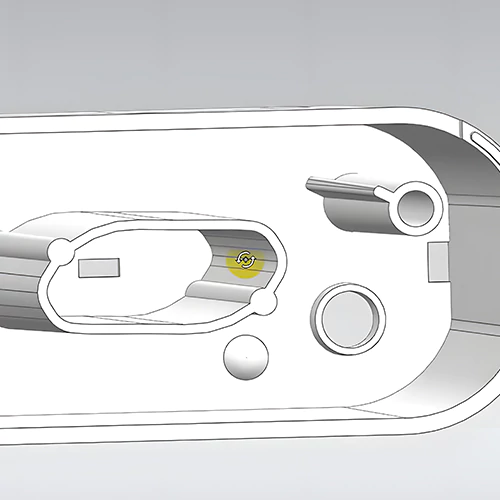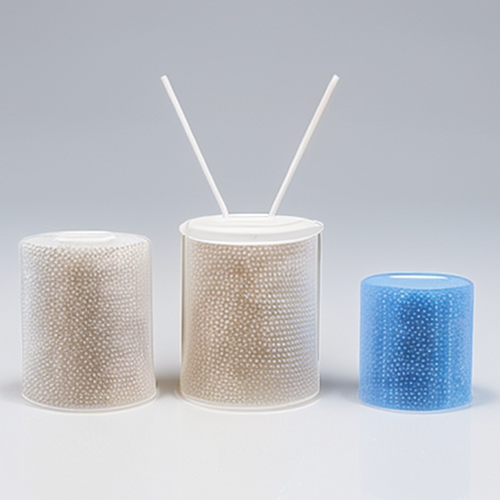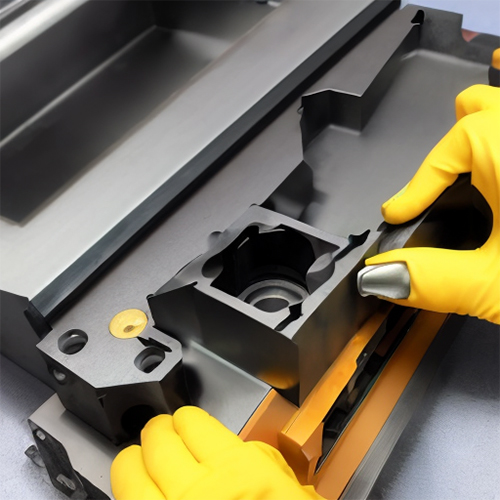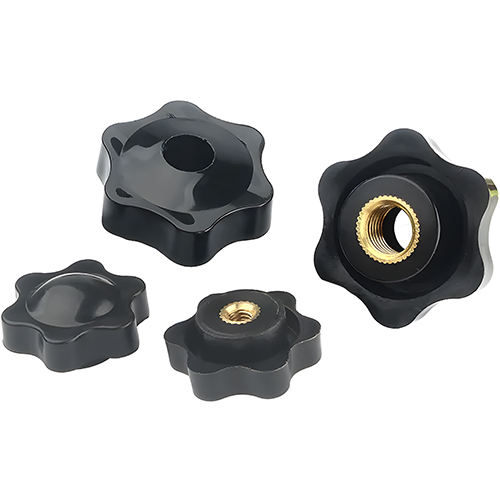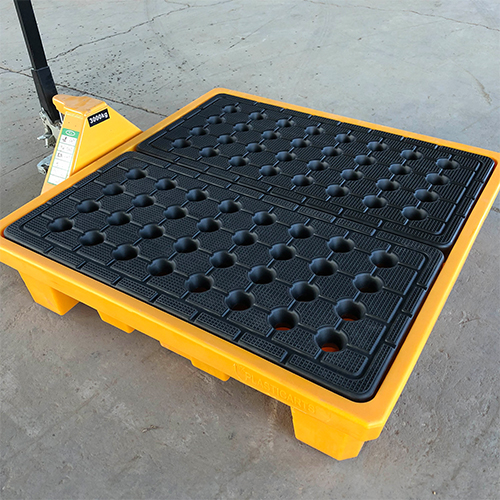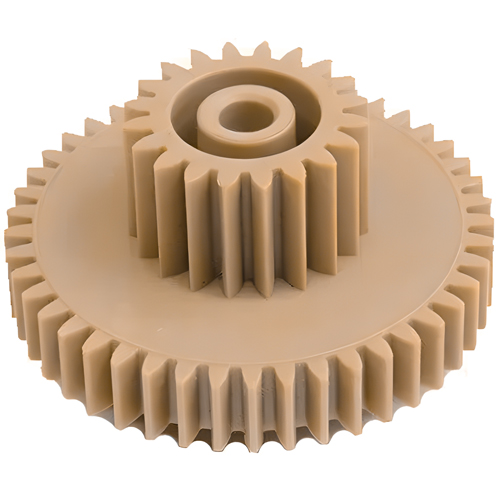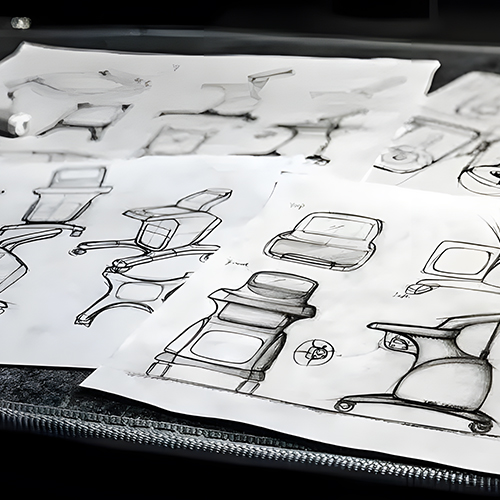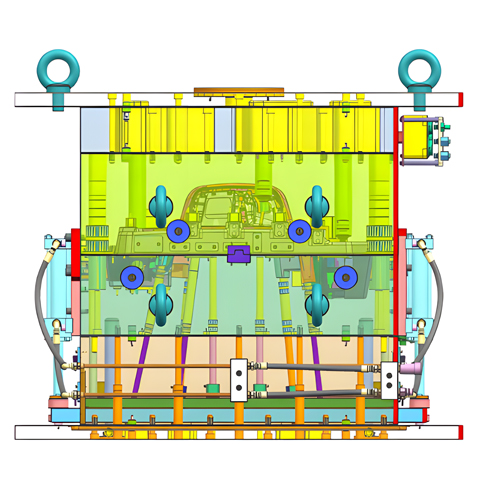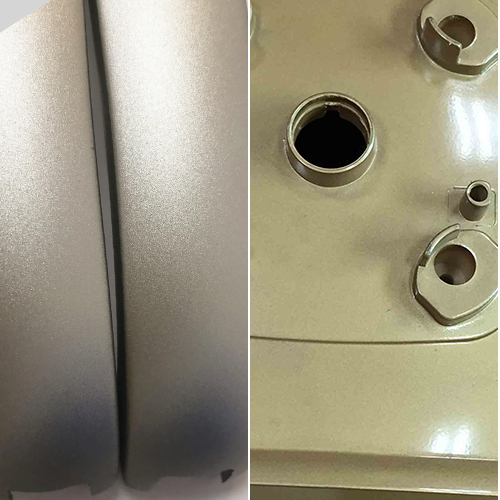Are you new to the injection molding industry and stumble upon the term AI-assisted injection molding often but don’t know what it means?
AI-assisted injection molding integrates Artificial Intelligence technology in injection molding machinery. This integration helps manufacturers seek automated assistance in handling the production process and assessing product defects, if any.
Manufacturing in the Industry 4.0 era is so reliant on data-driven precision that artificial intelligence (AI) is playing an increasingly important role in harnessing that data to improve the operation of machines, particularly injection molders.
AI in manufacturing refers to a set of technologies that enable machines to perform with human-like intelligence. Machine learning and natural language processing assist machines in simulating the human ability to learn, make decisions, and solve problems. Efficiency increased by data keeps processes running faster and more cost-effectively.
As the manufacturing industry advances with the integration of AI, it is also improving the most popular manufacturing process called injection molding. Besides, with AI rising, more customers and production businesses are considering AI-assisted injection molding solutions. This blog will explore how AI revolutionizes injection molding processes.
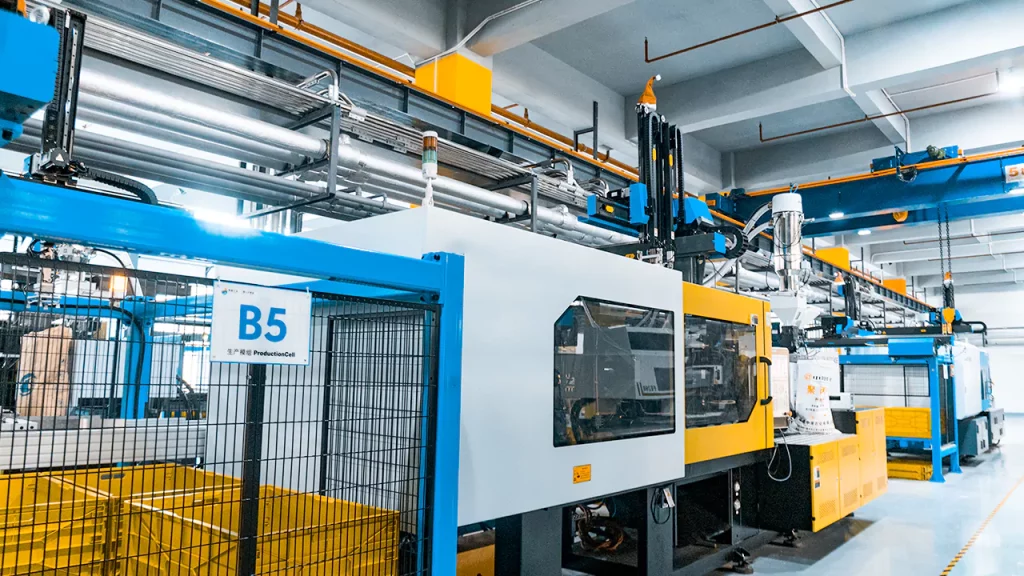
How AI-Assisted Injection Molding Improves Manufacturing Processes:
The application of artificial intelligence (AI) in injection molding is undergoing a revolution, bringing more efficiency, precision, and cost savings to the industry. Below introduce some of the most important uses-cases of AI-assisted injection molding:
Predictive Maintenance
AI-assisted injection molding systems can also be used to forecast when injection molding machines would require repair. This is another application for their utilization. Artificial intelligence systems can discover possible issues before they become serious by evaluating data from sensors and other sources. It enables manufacturers to arrange preventative maintenance in advance. This can assist in limiting the amount of downtime that occurs and the possibility of expensive repairs.
Also Read: The Ultimate Guide to Designing, Making, and Maintaining The Die Casting Mold
Monitoring and Controlling
Monitoring and controlling the injection molding process is one of the most potentially fruitful applications of artificial intelligence (AI). AI systems may recognize patterns and make real-time modifications by analyzing data collected by sensors everywhere throughout the production process.
Examples of these sensors are temperature and pressure sensors. For instance, an AI system may modify the injection pressure or temperature to guarantee that the plastic material fills the mold uniformly and at the appropriate rate.
We could accomplish this by ensuring that the plastic material fills the mold. For example, AI-assisted injection molding systems can assist manufacturers in reducing the number of flaws in their products and improve the consistency of those items by making real-time adjustments.
Optimization
In addition, AI systems can improve the injection molding process, enhancing its efficiency and effectiveness. For example, by analyzing data, artificial intelligence (AI) systems can identify areas within the manufacturing process that can be improved; An AI system may examine the gathered information to determine which combination of injection pressure and temperature produces the best results for a given mold; It can help factories enhance productivity while cutting waste and reducing the number of errors they produce by making these modifications.
Assurance of Quality
Injection molding is another process that can benefit from using AI systems to increase quality control. For example, AI systems can recognize patterns and trends that may indicate quality issues by analyzing data gathered from sensors and other sources.
For instance, a machine learning system may examine the pressure and temperature data collected throughout the injection molding process to locate regions of the component that are more likely to have flaws.
AI systems can assist manufacturers in reducing waste, improving product quality and uniformity, and identifying possible quality issues before they become significant by identifying potential quality issues before they become serious.
Working of AI-Assisted Injection Molding Machines:
Through the automation and improvement of various processes, the incorporation of AI into the injection molding sector is causing a revolution in the industry. This includes regulating molten plastic’s temperature, pressure, and flow rate, ultimately resulting in increased productivity and accuracy in producing consumer goods and vehicle parts.
A further enhancement of the capabilities of the technology is made possible by implementing intelligent sensors and predictive maintenance. With this enhancement, detecting and correcting flaws and errors in product design is easier.
The result is a more simplified production process that is also more cost-effective and produces items of a higher quality. As artificial intelligence (AI) continues to advance, the advantages it already provides to the injection molding industry will likely become even more apparent as time goes on.
How Artificial Intelligence Solves Injection Molding Production Problems?
Since injection molding is a globally popular and high-demand manufacturing process many customers and business owners prefer, companies that use this process to manufacture products often face problems in different steps. For example, even with advanced machinery hitting the market occasionally, certain injection molding problems like mold designing and process controlling can still be challenging in modern molding machinery.
However, similar to how AI initiates solutions for digital problems, this technology also allows manufacturing companies to process ahead of such challenges. Here’s how AI solves these issues:
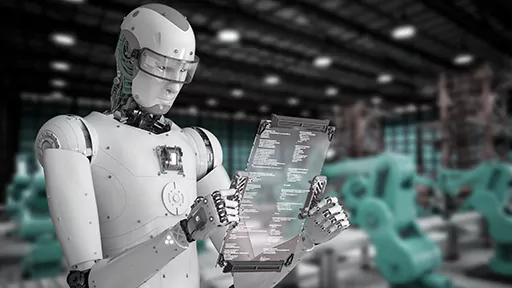
AI for Mold Designing:
When it comes to injection molding, the biggest challenge is designing a mold that can create a part with the desired shape, quality, and performance while minimizing defects, costs, and cycle time. This calls for significant knowledge, experience, and practice with trial and error.
However, artificial intelligence may assist you in optimizing your mold design process by utilizing data analysis, machine learning, and generative design techniques. This can be done for you.
AI can assist you in analyzing your part’s geometry, the material’s qualities, and the process parameters. It can also make recommendations for the optimal design of your mold, as well as its cooling system, gate placement, and injection profile.
You may also use AI to help you produce alternative mold design possibilities based on your objectives and restrictions and then assess those options according to various characteristics, such as whether they are feasible, how efficient, and how well they meet quality standards.
AI-assisted injection molding can help you save time and costs, increase mold performance, and reduce the number of errors caused by humans.
AI for Processing Controlling:
Controlling the process factors, such as temperature, pressure, speed, and flow rate, that might affect the quality and consistency of the components produced by injection molding is another issue that must be overcome. Because of this, there must be a significant amount of monitoring, adjustment, and feedback.
However, artificial intelligence can assist you in automating and improving your process control by employing techniques like data analysis, machine learning, predictive modeling, and sensors. Artificial intelligence can assist you in collecting and processing real-time data from your injection molding machines, allowing you to identify any irregularities, deviations, or flaws in the data.
AI can also help you foresee and prevent issues such as warping, shrinkage, or cracking and alter the process parameters accordingly. You can accomplish this by adjusting the parameters of the process. AI can assist you in increasing your productivity, decreasing your scrap rate, and ensuring the quality of your parts.
Real-Time Use Cases of AI-Based Injection Molding Solutions:
The emergence of AI is not new. However, the solutions it introduces in manufacturing, especially the injection molding business, are growing rapidly.
From companies adopting Artificial Intelligence and Machine Learning solutions in the form of injection molding assistants to businesses solving various real-time problems with the integration of AI in their production processes, AI use cases are increasing daily.
Considering this, one particular use-case of AI in solving production business problems include solving defect rate issue. A popular example of solving this issue is a similar business study. According to this study, a major plastic injection molding facility was encountering abnormally high error rates in a specialty plastic container created for the healthcare market. As a result, they could not discover or determine the underlying causes of these extremely high failure rates.
The company then tested AI technology for its plastic injection molding operations in June 2020 amid the first wave of COVID-19 infections. This AI approach enabled the company to agree to focus on two specific defect categories that were responsible for 80% of the scrap for the unique bottle being manufactured.
Considering this, it’s evident that companies can advance their manufacturing process and better solve production errors by adopting AI assistants and technology.
Conclusion:
Injection molding is likely the essential production process for the manufacturing industry in producing huge plastic products because it is efficient at mass production.
However, the injection molding industry has been under pressure for several decades now from competing countries, where products are produced at lower costs and where there has been some serious catching up to do in recent years in terms of the quality of products delivered.
Countries such as China and India produce products at lower costs, and where there has been some serious catching up to do in recent years. Because of this, it is essential for Flemish companies that specialize in injection molding to keep innovating and finding ways to cut costs.
They can do this by concentrating on automation (for example, automatic assembly immediately after injection molding), changing injection molding lines more quickly (more flexible changeover), reducing the number of times operators need to intervene, and maintaining a high level of product quality.
Are you looking for an updated injection molding manufacturing company that keeps up with AI-assisted injection molding trends and technology to offer improved manufacturing solutions?
Prototool is not a small-scale or large-scale manufacturing company. Still, it also adopts the latest technology and AI trends to deliver the best-quality production solutions for its global customers.
To communicate and learn more deeply, you can contact us by clicking here.

